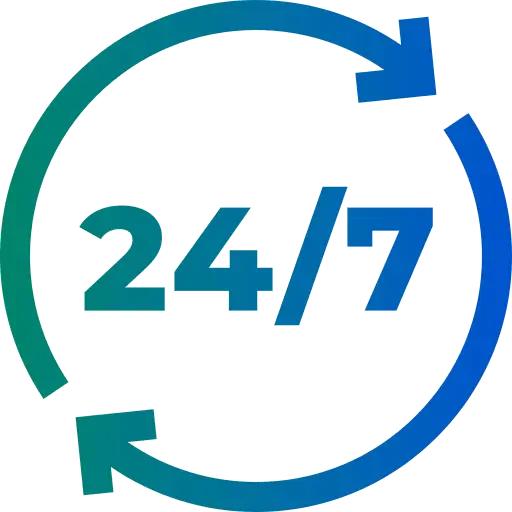
What is Factoring Finance?
Businesses exploring factoring finance solutions can partner with Viva Capital for approvals in as little as 8 hours, same-day funding, and advances up to 100 percent of invoice value. As an independently owned factoring company with over 20 years of experience, Viva Capital offers rates as low as 0.25 percent, credit lines up to $15 million, and bilingual support for companies across transportation, healthcare, manufacturing, staffing, and service industries.

Step 1.
Receive an Order from Your Customer
A customer places an order with your company.

Step 2.
Get Customer Credit Verified by Viva
Your company verifies the credit of your customer with Viva Capital.

Step 3.
Complete Your Customer’s Order
Your company completes the order to the approved customer.

Step 4.
Sell Approved Invoices to Viva
You sell the approved invoices to Viva Capital and receive cash within 24 hours.

Step 5.
Viva Will Handle the Collections Process
Viva Capital’s accounts receivables experts handle the collection process for you.

Step 6.
Track Invoice’s Status 24/7 Online
You keep track of your invoices 24/7 with our Accounts Receivable Reporting.
What is the Benefit of Using a Factoring Company?
Companies that bill other businesses for goods and services provided often wait weeks or months for the invoice to get paid. Creating better cash flow control processes can help, but it’s not always enough to overcome cash flow shortfalls, especially when unexpected events occur at the same time outstanding invoices are piling up.
Invoice factoring companies help bridge the gap by providing a short-term, debt-free working capital solution by leveraging accounts receivables.
When evaluating business funding options, including short-term and long-term financing, factoring offers a flexible solution that helps businesses maintain steady cash flow and avoid debt.
Factoring vs. A Traditional Bank Loan
Invoice factoring is different from a traditional business loan in lots of ways.
Factoring
- Debt-free
- Fast approval
- Fast funding (same-day available)
- Flexible limits (factor as much or as little as you like)
- Approval based on the creditworthiness of the business’s customers
- Small business owners and startups qualify
Traditional Bank Loan
- The borrower pays back the principal amount and interest
- The application process can take weeks or months
- Slow funding
- Hard limits set by the lender
- Approval is based on the applicant’s creditworthiness
- Only well-established companies qualify
Calculate your factoring rate
Enter in the information below to calculate your estimated funding fee.
TOTAL
▼ ▲Please enter the TOTAL VALUE OF ALL THE INVOICES YOU WOULD LIKE TO GET FACTORED.
DAYS
▼ ▲Please enter the average payment term or payment due date in days. (example: it TAKES ME 60 DAYS TO GET PAID.)
Estimated Funding Fee
$24.38
*Disclaimer:* Please be aware that these are only estimates. For a more precise rate tailored to your specific needs and business, we encourage you to contact us directly. We will gladly provide a more accurate rate based on your unique business requirements.
Is Accounts Receivable Financing the Same as Factoring?
Accounts receivable financing and factoring are often confused but represent distinct financial solutions. Here’s how they differ:
- Accounts Receivable Financing involves borrowing money against unpaid invoices and using them as collateral. You retain ownership of the invoices and are responsible for collecting payments. This option incurs debt, as the borrowed amount plus interest must be repaid over time. It allows businesses to maintain control of their accounts receivable process.
- Factoring means selling your invoices to a factoring company at a discounted rate. The factoring company assumes responsibility for collections and provides a cash advance against the invoice value. Factoring doesn’t involve debt since you’re not borrowing money but selling an asset (your invoices). The business benefits from improved cash flow and reduced administrative work.
Key Difference: Financing is a loan and appears on your balance sheet, while factoring is a sale of assets and doesn’t affect your debt-to-equity ratio.
Factoring provides immediate funds and is more suitable for businesses looking to avoid long-term debt obligations, whereas accounts receivable financing offers greater control over receivables but comes with repayment responsibilities.
Is Accounts Receivable Financing or Factoring Considered Debt?
Factoring is a debt-free solution because your customers are the ones who pay the balance, not you. However, a true financing arrangement does involve debt, so it’s important to confirm the terms before signing.
The Role of Payment Terms in Factoring
Payment terms, such as net 30 payment terms, play a crucial role in determining a business’s cash flow and financial stability. For businesses waiting weeks or months to receive payments, invoice factoring offers a powerful solution to bridge cash flow gaps. By selling invoices with net 30 or similar terms, companies can access immediate funding without waiting for customers to fulfill payment deadlines. This allows businesses to maintain smooth operations, cover expenses, and invest in growth opportunities without the delays typically associated with extended payment terms.
Invoice Factoring vs. Invoice Discounting
Invoice discounting is similar to factoring, but the biggest difference is in who collects. Again, with factoring, your factoring company collects from your customers. With discounting, you’re responsible for getting the payments collected, but your customers make their payments into an account that’s managed by your discounting company.
Types of Factoring
Just as there are several ways to use your outstanding invoices to solve cash flow problems, there are several types of invoice factoring, too.
Which is the best type of factoring for you?



Recourse &
Non-Recourse Factoring
Spot
Factoring
Reverse
Factoring
Recourse & non-recourse factoring
The checks a factoring company performs on your customers prior to accepting an invoice for payment go a long way to ensuring the customer will make good on their obligation. Unfortunately, there is no way to guarantee a company will pay their invoice. With recourse factoring, you are ultimately responsible for paying the factoring company back any amount advanced to you if your customer doesn’t pay. With non-recourse factoring, you don’t have an obligation to pay the remaining balance if the customer doesn’t pay.
Spot factoring
One of the major benefits of factoring is that a business can choose which invoices to factor and how often to factor. Some businesses factor frequently, while others do so intermittently as needed. When both parties come together for a single financial transaction—to factor only one invoice—it’s referred to as spot factoring. This is more common when a small business owner has most or all of their revenue tied up in a single large invoice and requires immediate cash to continue operating.
Reverse factoring (supply chain finance)
Whereas traditional factoring is initiated by the “seller” (the provider of goods or services), reverse factoring, also known as supply chain financing, is initiated by the “buyer” (company ordering goods or services). In these cases, the buyer is typically a large enterprise in good financial standing that wants to wait to pay an invoice, but the seller is a midsize or small business that can’t afford to wait for payment.
Picture a chain auto repair shop in the United States that needs to order a special part for an exotic car, and it’s only available from one overseas supplier. The repair shop doesn’t want to pay for the part until their customer pays for the work. Or, imagine a large retailer that’s setting up a pop-up shop and needs to pay a trucking company to move its displays across the country. The retailer may not want to pay the trucking company until their shop is generating revenue.
In situations like these, the buyer can approach a reverse factoring company and get approval for supply chain financing. However, like traditional factoring, it’s the seller that’s responsible for paying the fee. Most are happy to do so because the amount is largely based on the enterprise’s credit history, so rates are quite low, and accepting the terms allows them to fulfill a large order without waiting for payment.
With this in mind, both the buyer and seller must agree to the terms set. When the service is complete or goods are transferred, the factoring company pays the seller. The buyer then pays the factoring company at a later date according to the terms set.
Explore More Business Financing Options
What is the Factoring Process?

Step 1: A customer places an order with your company.

Step 2: Your company verifies the credit of your customer with Viva Capital.

Step 3: Your company completes the order to the approved customer.

Step 4: You sell the approved invoices to Viva Capital and receive cash within 24 hours.

Step 5: Viva Capital’s accounts receivables experts handle the collection process for you.

Step 6: You keep track of your invoices 24/7 with our Accounts Receivable Reporting.
What Kind of Companies or Industries Use Factoring?
Virtually any B2B company that sends invoices for services or goods after they’ve been delivered can work with factoring companies. A few of the most common industries are outlined below.

Transportation
Shippers sometimes take up to 90 days to pay transportation companies for carrying a domestic load. International jobs can take even longer. In the meantime, the transportation company needs to pay for fuel, tires, payroll, and other expenses. Factoring solves these short-term cash flow problems, empowering the transportation company to accept more work.

Healthcare
Healthcare factoring typically falls into two main brackets: factoring for providers and factoring for vendors. On the provider side, it’s invoices due to be paid by Medicare, Medicaid, or private insurance companies that are processed. On the vendor side, it’s things like medical equipment, staffing, patient transportation, and other bills that are covered.

Oilfield
Viva Capital’s proximity to the Permian Basin has contributed to longstanding relationships with countless oilfield services companies. Although we serve a wide variety of niches, quite a few work in infrastructure construction, rig/site preparation, disposal, sand, water haulers, and pipeline services.

Manufacturing
All types of manufacturing companies, from textiles to oil and gas, chemical, food, electronics, and more, rely on invoice factoring from time to time. It’s a huge benefit to startups and small businesses that don’t qualify for bank loans but need working capital to cover labor and raw materials while waiting for payments, as well as those trying to secure more business or scale up.

Staffing
Labor is the greatest expense for most industries, but it’s virtually everything to staffing companies. Unfortunately, it’s also one of the most inconsistent industries for cash flow as well. More often than not, staffing companies use factoring to cover payroll, but sometimes it helps companies scale, enhance their marketing, and cover other expenses.

Service providers
Like staffing companies, businesses in the service industry often struggle with inconsistent cash flow and slow-paying clients, all while trying to manage payroll. Everyone from accountants to pest control companies falls within this bracket, and all may qualify for factoring as long as they have unpaid B2B invoices.
What Fees are Involved When Using Invoice Factoring Services?
It’s important to clarify that when you’re leveraging invoice factoring services, the advance rates will vary from one company to the next and even within the same company, depending on the riskiness of the deal. For example, you may only get 50 percent of a spot factoring transaction upfront. Lots of companies promote advances of 70 percent under ordinary circumstances, too. On the other hand, Viva Capital will advance up to 100 percent of the value. In all cases, however, a factoring fee is usually involved as well.
That’s because, unlike loans, which come with interest payments, factoring companies typically charge a flat rate for their services. The amount generally ranges from one to five percent of the advance rate. The creditworthiness of your customers, your invoice volume, the level of risk, and specific terms of your factoring agreement will all weigh into the rate you’re quoted.
Suffice it to say, invoice factoring services are generally not less expensive than bank loans, but they do help businesses that don’t qualify for bank loans and are one of the few no-debt working capital solutions available for small-business owners.
Additional FAQs About Factoring Basics
What is invoice factoring?
Invoice factoring is a financial service where a business sells its unpaid invoices to a factoring company at a discount. In return, the company receives immediate cash, usually within 24 hours, while the factoring provider takes over collecting payment from customers. This helps businesses maintain cash flow without taking on debt.
How does factoring work compared to other forms of financing?
Unlike bank loans or lines of credit that require strong credit history and collateral, factoring uses your receivables as the basis for funding. Approval is based on your customers’ credit, not yours, and funding is much faster, often available within a day.
What is the difference between factoring and invoice financing?
In factoring, the factoring company buys your invoices and manages collections. In invoice financing, you borrow against invoices and remain responsible for customer payments. Businesses often choose factoring when they want both fast funding and outsourced collections.
What is the difference between recourse and non-recourse factoring?
In recourse factoring, you are responsible for repaying the advance if a customer fails to pay. In non-recourse factoring, the factoring company assumes the risk of nonpayment, though fees are typically higher. Both models can help businesses manage risk and cash flow.
Do I need good credit to qualify for factoring?
Not necessarily. Factoring approval is usually based on the credit strength of your customers rather than your business. This makes it a flexible option for startups, small businesses, or companies with limited credit history.
How much of my invoice value will I receive upfront?
Most factoring companies advance between 80% and 95% of the invoice value. The remainder, minus a small fee, is paid once your customer settles the invoice in full.
Can I factor a single invoice?
Yes. Many factoring providers offer single-invoice or “spot” factoring. This option allows you to unlock cash from a specific invoice without entering a long-term agreement.
What is a factoring facility?
A factoring facility is an ongoing agreement that lets you factor invoices continuously, similar to a line of credit. It’s ideal for businesses with regular invoicing that want consistent access to working capital.
How does a factoring company evaluate credit risk?
Factoring companies evaluate the creditworthiness of your customers, since their ability to pay determines funding approval. This is why many small or new businesses qualify for factoring even if they don’t meet traditional lending standards.
What industries benefit most from factoring?
Industries with long payment cycles see the most benefit, including transportation, staffing, manufacturing, healthcare, and oilfield services. Factoring helps these businesses cover expenses like payroll, fuel, and supplies while waiting for customers to pay.
What are the benefits of invoice factoring?
Factoring improves cash flow, reduces reliance on debt, and shifts collections to the factoring company. It helps businesses cover day-to-day expenses, take on new projects, and manage growth without waiting on slow-paying customers.
What should I consider when choosing a factoring company?
Look at funding speed, fees, customer service, and industry experience. Choose a factoring company with transparent terms, flexible programs, and proven expertise in your sector. The right partner can make a major difference in managing your cash flow effectively.
